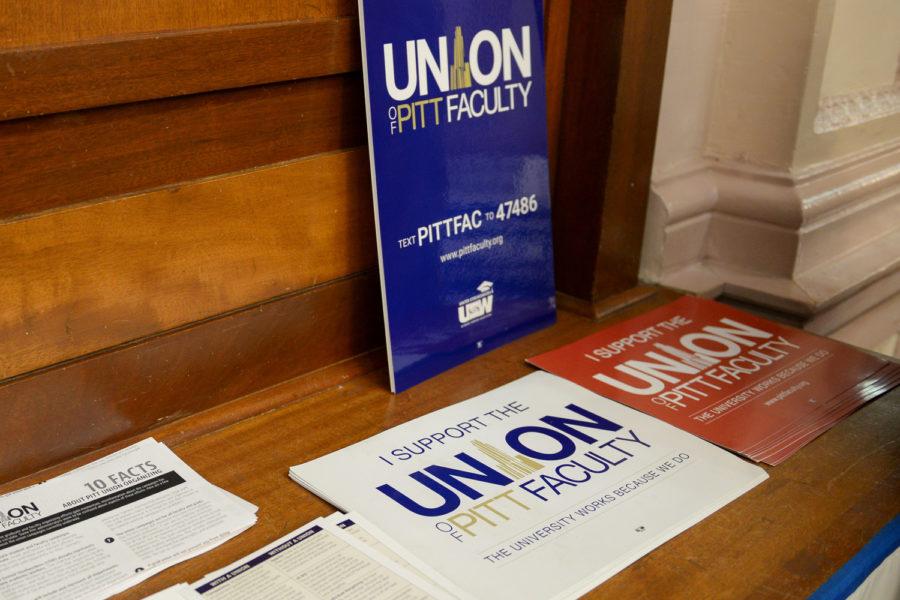SGB releases statement supporting faculty’s ‘freedom to unionize’
SGB released a statement on Sunday announcing their support of Pitt’s faculty unionization efforts and “their freedom to vote and freedom to unionize at will.”
October 11, 2021
The Student Government Board released a statement on Sunday supporting Pitt faculty’s “freedom to vote and freedom to unionize” in the ongoing faculty union election. The statement, which the entirety of SGB signed, criticizes Pitt’s relationship with Ballard Spahr, a “union avoidance” law firm.
“The University should not directly or indirectly influence an election that faculty must be free to decide,” the statement said. “The outcome of this election must be based on the unique needs of faculty members.”
The University is in the midst of a multiyear effort to unionize roughly 3,000 faculty members. Pitt professors and researchers from all campuses have until Tuesday to cast their ballot on whether they want to form a faculty union with the United Steelworkers.
SGB voted at a late September board meeting to not sign onto a statement written by the College of General Studies Student Government and the Graduate and Professional Student Government in support of the ongoing Pitt faculty union election, instead opting to create its own. Some student leaders criticized SGB for not signing onto the joint statement.
SGB President Harshitha Ramanan said SGB’s statement is very similar to the other statement, except that it doesn’t encourage faculty to vote in favor of the union.
Ramanan also said Pitt should not interfere in the faculty unionization vote and should be transparent about its “anti-unionization” spending. Pitt has paid more than $2 million to Ballard Spahr since 2016, when the graduate and faculty union campaigns launched.
“SGB believes that the faculty members should vote as they see fit with no interference from the University,” Ramanan said. “We would also like there to be exact spendings listed of all fees spent in regards to any type of ‘anti-unionization’ or union avoidance efforts.”
Ramanan added that faculty should be free to vote in the unionization election in whatever way fits them, while also considering other factors, such as students.
“It is up to each individual faculty member to vote for what is in their best interests while hopefully taking into consideration what is also most beneficial for students,” Ramanan said.



